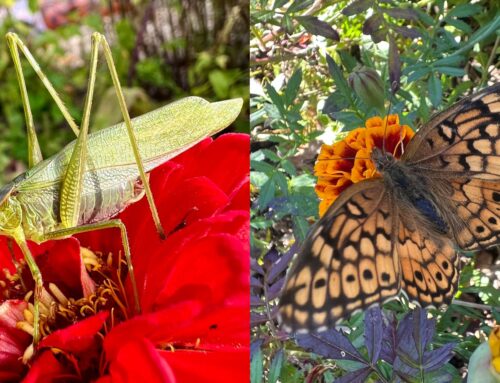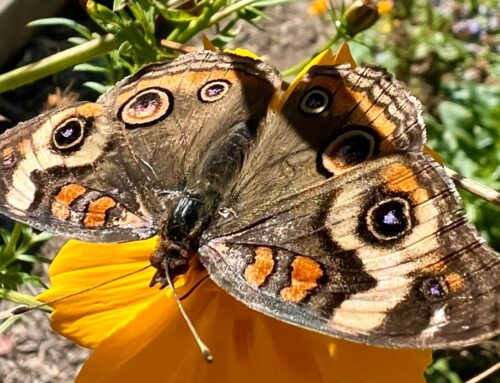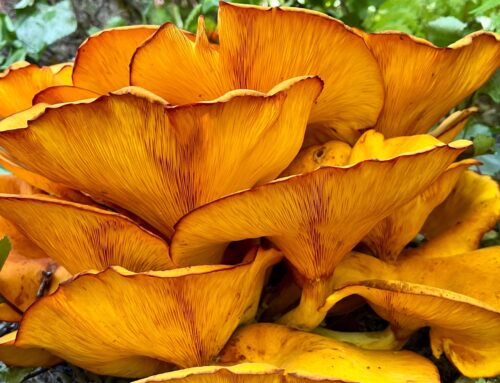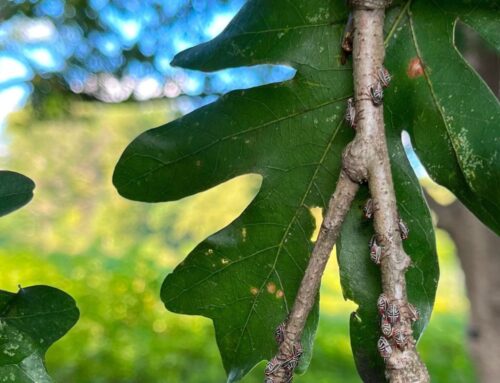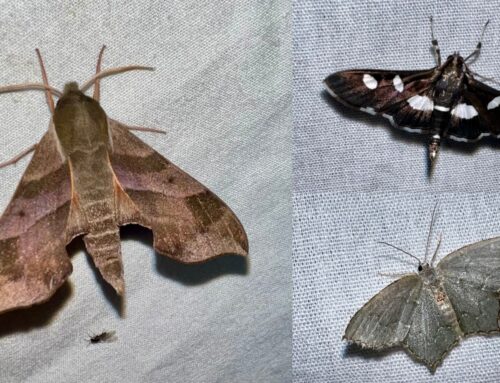“Just take your time. You’ll be fine.” With those words of encouragement from Paul Strommer in May of this year (2020), I became a beekeeper.
I had joined Paul’s Hive Sponsorship program at Tyler the previous year, in the spring of 2019. I wasn’t ready to take up beekeeping, but I was eager to learn more about it. Now, just a year later, I was driving home with a humming, vibrating, sealed cardboard box in the trunk of my car; a nucleus colony. My own honey bees.
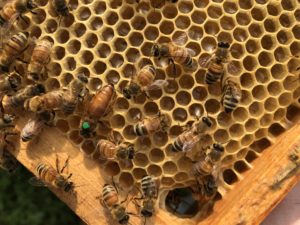
I’d been thinking I might get bees next year, but then, in April or so, Paul sent an email to the community of beekeepers that had grown up around Tyler’s apiary. The winter had been mild, and the bees were going gangbusters. Paul and his fellow volunteer, Paul Pitts, were in a position to create a number of nucleus colonies or “nucs”. Twenty twenty was shaping up to be a year for adjusting expectations on the fly, so with so many other plans scuttled, I figured why not take the plunge?
I found a spot in my backyard with morning sun and dappled afternoon shade, and moved my bees carefully — first into a borrowed 8-frame hive — and later into one of my own. I’ve been taking it slowly, learning as I go and using the practical skills I learned at the arboretum, reading to learn more, yet also trying to emulate Paul and Paul’s very calm manner in handling the bees. It’s not about harvesting honey this year; it’s about letting the small nucleus colony grow into a full-sized colony with the strength to survive the winter.
Nearly four months in, I can report that my bees are industrious and prolific. The top and bottom boxes of the hive are heavy with honey and brood, respectively, and the honey is delicious! My family’s initial skepticism has mostly evaporated. My teenagers are happy to help with inspections, and we’ve suffered just three stings so far. However, I still have a lot to learn. Every encounter with the bees generates new questions, but I’m getting there.
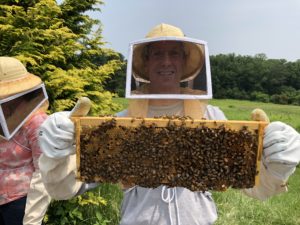
I caught up recently with a couple of other alumni of the Hive Sponsorship program, Debbie Tyler and Jim Corey. Debbie explained the attraction of the program:
“It’s an excellent way of exploring the hobby in a place where participants get hands-on experience handling bees, will be safe and expected to make mistakes, and can make an educated determination about whether or not it was something that we would want to take up on our own without the financial and mental/emotional outlay that can come with beginning beekeeping.”
Jim noted, “There’s so much information available online, but the [Tyler] course makes it much more relevant. It clicks right away.” Jim praised the program for its hands-on approach and “building a support network” of local beekeepers – a network I’ve also been grateful to be able to lean on.
While my progress has felt slow and steady, Jim’s has been positively turbo-charged. He started in April with an 8-frame colony and an overwintered nuc, and within a few weeks he had successfully coped with two swarms and expanded his apiary to five colonies! Jim said his wife was ready to call 911 over the first swarm, but things have settled down since, and he’s even been able to involve his grandchildren in harvesting honey.
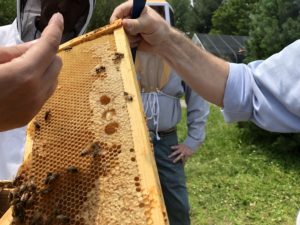
Meanwhile Debbie, like me, is content with one colony: “My girls are out there, doing their thing. It is actually very mesmerizing to sit by the hive and watch them come and go, largely unbothered by the current events. They forage in the yard (and up to 3 miles away), drink from the birdbaths, and just keep doing their jobs. I do love it.”
Addendum for this year:
The Tyler Hive Sponsorship is led by Paul Strommer and the program starts April 1, 2023. There will be 12 to 14 two-hour sessions (which include the hive installation).


